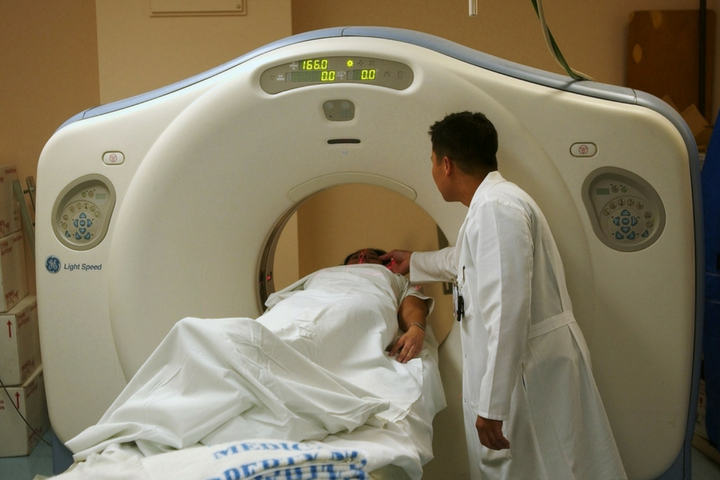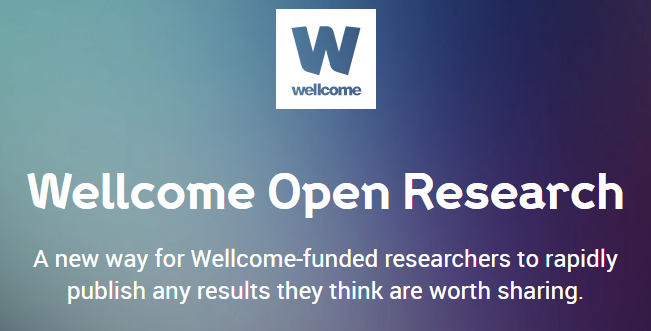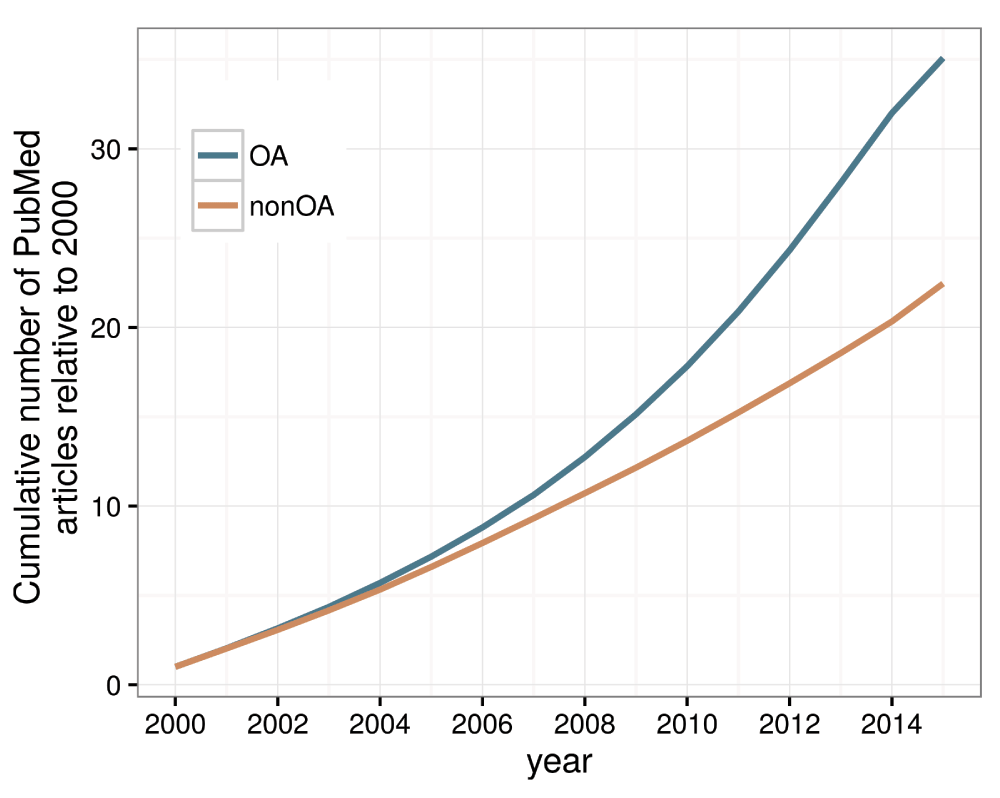Send us a link
CODECHECK: an Open Science Initiative
An Open Science initiative for the independent execution of computations underlying research articles during peer review to improve reproducibility.
Recognizing the Value of Software: A Software Citation Guide
This article provides broadly applicable guidance on software citation for the communities and institutions publishing academic journals and conference proceedings.
Current Market Rates for Scholarly Publishing Services
This article provides a granular, step-by-step calculation of the costs associated with publishing primary research articles, from submission, through peer-review, to publication, indexing and archiving.
Inflated citations and metrics of journals discontinued from Scopus for publication concerns: the GhoS(t)copus Project
Inflated citations and metrics of journals discontinued from Scopus for publication concerns: the GhoS(t)copus Project
The citation count of journals discontinued for publication concerns increases despite discontinuation and predatory behaviors seemed common. This paradoxical trend can inflate scholars’ metrics prompting artificial career advancements, bonus systems and promotion. Countermeasures should be taken urgently to ensure the reliability of Scopus metrics both at the journal- and author-level for the purpose of scientific assessment of scholarly publishing.
Discipline-specific open access publishing practices and barriers to change: an evidence-based review
Discipline-specific open access publishing practices and barriers to change: an evidence-based review
Read the original article in full on F1000Research: Discipline-specific open access publishing practices and barriers to change: an evidence-based review
Turning the Tables: A University League-Table Based On Quality Not Quantity
Turning the Tables: A University League-Table Based On Quality Not Quantity
League tables predominantly reward measures of research output, such as publications and citations, and may therefore be promoting poor research practices by encouraging the “publish or perish” mentality. The authors examined whether a league table could be created based on good research practice.
The Principles of Tomorrow's University
The Principles of Tomorrow's University
In the 21st Century, research is increasingly data- and computation-driven. Researchers, funders, and the larger community today emphasize the traits of openness and reproducibility. In March 2017, 13 mostly early-career research leaders who are building their careers around these traits came together with ten university leaders (presidents, vice presidents, and vice provosts), representatives from four funding agencies, and eleven organizers and other stakeholders in an NIH- and NSF-funded one-day, invitation-only workshop titled “Imagining Tomorrow’s University.” Workshop attendees were charged with launching a new dialog around open research – the current status, opportunities for advancement, and challenges that limit sharing.
The workshop examined how the internet-enabled research world has changed, and how universities need to change to adapt commensurately, aiming to understand how universities can and should make themselves competitive and attract the best students, staff, and faculty in this new world. During the workshop, the participants re-imagined scholarship, education, and institutions for an open, networked era, to uncover new opportunities for universities to create value and serve society. They expressed the results of these deliberations as a set of 22 principles of tomorrow's university across six areas: credit and attribution, communities, outreach and engagement, education, preservation and reproducibility, and technologies.
Discipline-specific Open Access Publishing Practices and Barriers to Change
What are the underlying mechanisms that cause disciplines to vary in their OA publishing practices.
What Is a Predatory Journal? a Scoping Review
Summarizing the literature on predatory journals, describing its epidemiological characteristics, and extracting empirical descriptions of potential characteristics of predatory journals.
What Is a Predatory Journal?
The objective of this scoping review is to summarize the literature on predatory journals, describe its epidemiological characteristics, and to extract empirical descriptions of potential characteristics of predatory journals.
10 Considerations for Open Peer Review
Article covers basic principles and summarise best practices, indicating how to use Open Peer Review to achieve best value and mutual benefits for all stakeholders and the wider research community.
A New Paradigm for the Scientific Enterprise: Nurturing the Ecosystem
Insights from Authors’ Editors Can Help Journal Editors Define and Refine Their Core Competencies
Insights from Authors’ Editors Can Help Journal Editors Define and Refine Their Core Competencies
Journal editors should be able to ensure that authors are given useful feedback on the language and writing in submitted manuscripts. Journal editors should be able to deal effectively with inappropriate text re-use and plagiarism.
The Peer Review Process for Awarding Funds to International Science Research Consortia: a Qualitative Developmental Evaluation
The Peer Review Process for Awarding Funds to International Science Research Consortia: a Qualitative Developmental Evaluation
This article describes the use of qualitative research to explore the peer review process used for awarding grants to ten multi-national natural science research consortia
On the Origin of Nonequivalent States: How We Can Talk About Preprints
On the role of different stakeholders on how to collectively improve the process of scholarly communications not only for preprints, but other forms of scholarly contributions.
What Do We Know About Grant Peer Review in the Health Sciences?
What Do We Know About Grant Peer Review in the Health Sciences?
Peer review decisions award >95% of academic medical research funding, so it is crucial to understand how well they work and if they could be improved.
Can a Checklist Improve the Quality of Reporting of Clinical Trials?
On the important role of professional medical writers in improving the quality of reports on clinical trials.

F1000 Research Started Publishing Registered Reports
The philosophy behind the Registered Report format is that the intrinsic value of science is in the rigor of the method, not the appeal of the results.
What Is Open Peer Review? A Systematic Review
A systematic review of definitions of “open peer review” or “open review”, to create a corpus of 122 definitions.
Online Networking, Data Sharing and Research Activity Distribution Tools for Scientists
Online Networking, Data Sharing and Research Activity Distribution Tools for Scientists
Free online tools for networking, data sharing and measuring research impact.
A Multi-Disciplinary Perspective on Emergent and Future Innovations in Peer Review
A Multi-Disciplinary Perspective on Emergent and Future Innovations in Peer Review
Examining the functionality of a range of social Web platforms, and comparing these with the traits underlying a viable peer review system.
We Can Shift Academic Culture Through Publishing Choices
Choices researchers can make to stop exploiting themselves and discriminating against others.
Wellcome Open Research: The Start of a New Journey
The first articles have gone live on Wellcome Open Research; 15 of them in total, with more submissions in the pipeline.

The Academic, Economic and Societal Impacts of Open Access
While deceptive publishing remains an ongoing issue, particularly in the developing world, increasing public engagement, development of OA policies, and discussion of sustainable and ethical publishing practices can remove this potential threat.
Time for sharing data to become routine
Time for sharing data to become routine
The seven excuses for not doing so are all invalid.

